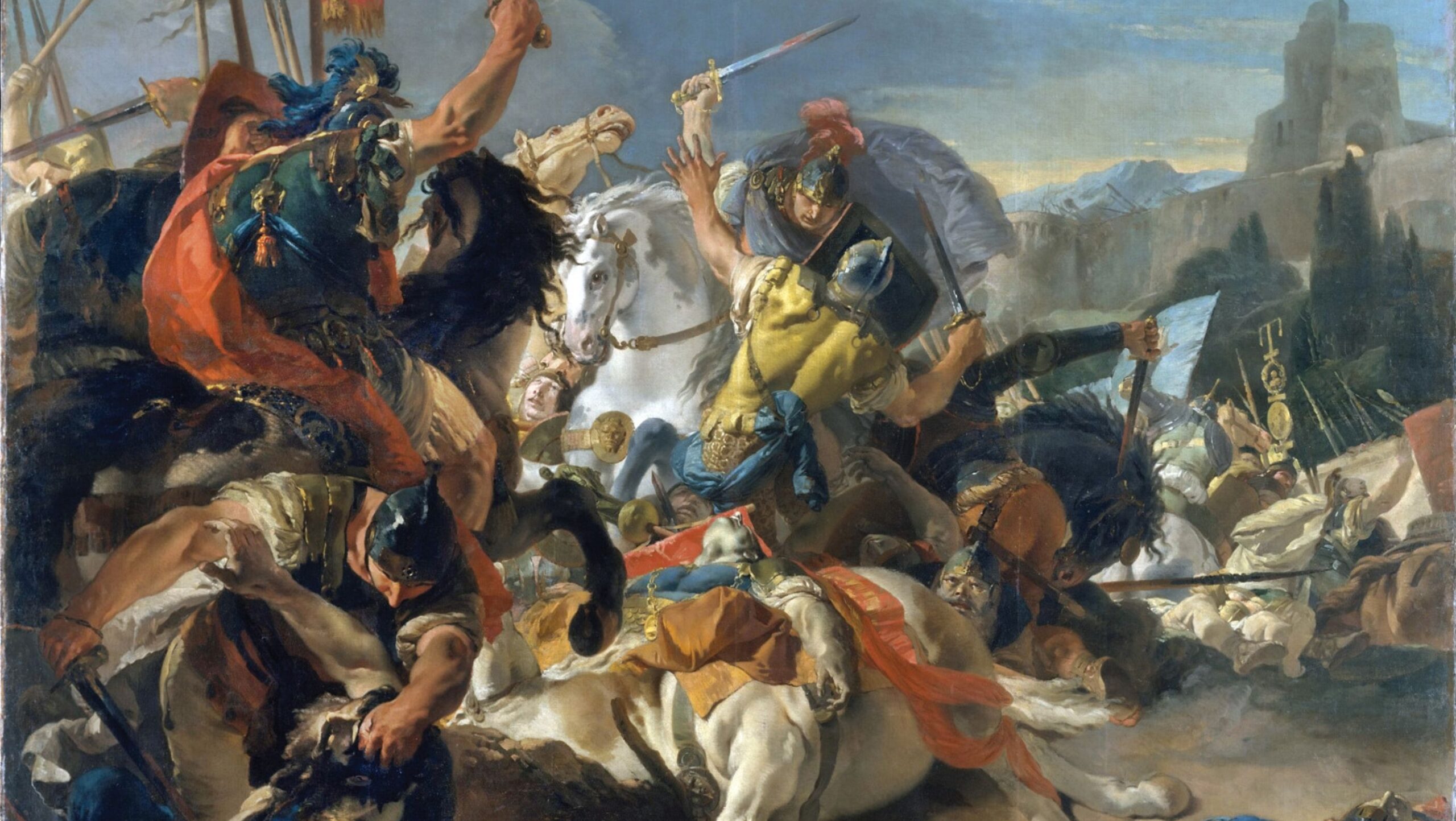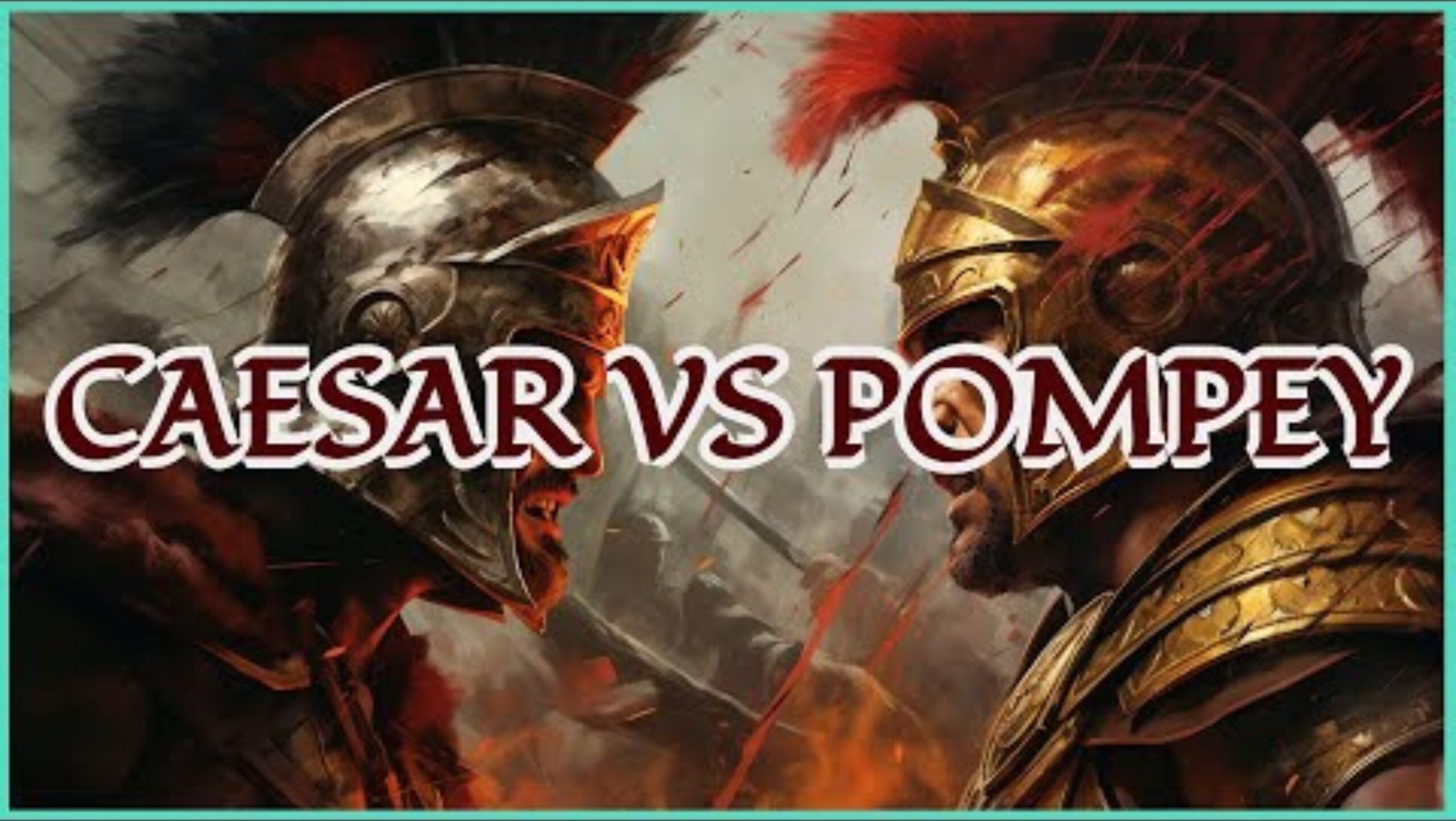Born into a prominent Roman family in 106 BCE, Pompey the Great rose to become one of the most accomplished military commanders and influential figures in ancient Rome’s history. His exceptional military abilities, political alliances, and conquests shaped the course of the late Roman Republic.
But Pompey’s path to greatness was not without its challenges and controversies. From his early career serving under his father to his pivotal role in the Civil War, which ultimately led to his downfall, Pompey’s life was marked by triumph and tragedy.
In this article, we’ll explore the fascinating story of Pompey the Great, from his meteoric rise to power to his lasting impact on the Roman world. Get ready to be captivated by the tale of one of history’s most legendary figures!
Table of Contents:
- Pompey’s Early Life and Military Career
- Pompey’s Rise to Power During Sulla’s Civil War
- Pompey’s Campaigns and Victories
- The First Triumvirate and Political Alliances
- Pompey’s Governance and Reforms
- The Rivalry with Julius Caesar and Civil War
- Pompey’s Defeat and Legacy
- Conclusion
Pompey’s Early Life and Military Career: Pompey the Great
Pompey the Great was born in 106 BCE into a prominent Roman family. His early career began under the guidance of his father, Pompeius Strabo, a successful general.
Even at a young age, Pompey demonstrated exceptional military abilities. He quickly gained the respect and admiration of his father’s veteran soldiers.
Born into a prominent family, he served under his father, Pompeius Strabo, and Demonstrated exceptional military skills at a young age.
Pompey’s military career took off when he joined his father’s army. Under Pompeius Strabo’s command, Pompey honed his skills and gained valuable experience.
Despite his youth, Pompey refused to be overshadowed by his father’s reputation. His growing military prowess and leadership qualities became evident to all who served alongside him.
Pompey’s early years laid the foundation for his future successes. His natural talent for military strategy and his ability to inspire loyalty in his troops would serve him well throughout his illustrious career.
Pompey’s Rise to Power During Sulla’s Civil War: Pompey the Great

Pompey’s rise to power accelerated during the Roman Republic’s civil war. He chose to support Sulla, a decision that would shape his future.
In a ruthless display of loyalty to Sulla, Pompey executed Marian leaders who had surrendered to him. This act showcased his unwavering commitment to his chosen side.
Supported Sulla in the civil war, Executed Marian leaders, Gained political influence and military command
By aligning himself with Sulla, Pompey gained significant political influence and military command. His support proved crucial in Sulla’s ultimate victory in the civil war.
Pompey’s actions during this turbulent period, while brutal, demonstrated his strategic thinking and ability to navigate complex political landscapes. His loyalty to Sulla paid off, setting the stage for his future prominence in the Roman Republic.
Pompey’s Campaigns and Victories: Pompey the Great
Pompey’s military genius shone through in his numerous campaigns and victories. One of his most notable achievements was defeating Spartacus in the slave revolt.
Alongside Marcus Licinius Crassus, Pompey played a crucial role in crushing the rebellion. Although Crassus initially took credit for the victory, Pompey’s contribution could not be ignored.
Defeated Spartacus in the slave revolt, Conquered frontier kingdoms in Asia Minor and the eastern provinces, Extended Roman control over the late Roman Republic
Pompey’s military prowess extended beyond Rome’s borders. He successfully conquered frontier kingdoms in Asia Minor and the eastern provinces, bringing them under Roman control.
These victories significantly expanded the territories of the late Roman Republic. Pompey’s campaigns in the east showcased his ability to lead armies, negotiate with foreign powers, and establish Roman dominance.
Through his military achievements, Pompey not only solidified his own reputation but also helped to shape the future of the Roman Republic. His conquests set the stage for Rome’s continued expansion and influence in the region.
The First Triumvirate and Political Alliances: Pompey the Great
Pompey’s political acumen was as impressive as his military skills. He formed the First Triumvirate, a powerful alliance with Julius Caesar and Marcus Licinius Crassus.
This alliance brought together three of the most influential figures in the Roman Republic. Each member had their own ambitions, but they recognized the benefits of working together.
Formed the First Triumvirate with Julius Caesar and Marcus Licinius Crassus, Married Caesar’s daughter Julia to strengthen political ties
To cement the alliance, Pompey married Caesar’s daughter, Julia. This political marriage strengthened the ties between the two powerful men and their families.
The First Triumvirate allowed Pompey, Caesar, and Crassus to pool their resources and influence. They supported each other’s political agendas and worked together to achieve their goals.
However, the alliance was not destined to last forever. Personal ambitions and jealousies eventually led to its downfall. Despite this, the First Triumvirate remains a testament to Pompey’s political savvy and his ability to forge alliances with even his most formidable rivals.
Key Takeaway: Pompey the Great
Pompey quickly rose through the ranks due to his exceptional military skills and strategic alliances. Supporting Sulla, he gained power by executing Marian’s leaders and winning crucial battles. His campaigns expanded Rome’s territory, solidifying his reputation. Forming the First Triumvirate with Caesar and Crassus showcased his political acumen.
Pompey’s Governance and Reforms: Pompey the Great
When Pompey the Great served as consul, he implemented several reforms that had a lasting impact on the Roman Republic.
Served as counsel and implemented reforms, Resettled pirates as peaceful farmers, Established defensive frontiers, and extended Roman control
One of Pompey’s most notable achievements was resettling pirates as peaceful farmers. He recognized that simply defeating them militarily was not enough – he needed to provide them with an alternative way of life.
By giving them land and the opportunity to earn an honest living, Pompey helped to reduce piracy and increase stability in the region. He also established defensive frontiers and extended Roman control over vast territories.
As consul, Pompey worked closely with Aulus Gabinius, who was also elected consul. Together, they implemented a range of reforms aimed at strengthening the Roman state and improving the lives of its citizens.
Pompey’s reforms were not always popular with the Roman Senate, but he had the support of powerful political allies like Gaius Manilius. Through a combination of military might, political savvy, and strategic alliances, Pompey was able to extend Roman control and establish a lasting legacy.
The Rivalry with Julius Caesar and the Civil War: Pompey the Great

Growing rivalry and power struggle with Julius Caesar, Caesar’s defiance of the Senate and crossing of the Rubicon, Pompey’s demands and flight from Rome
Despite their earlier alliance, Pompey and Julius Caesar eventually became bitter rivals engaged in a power struggle that would shape the future of Rome.
In 49 BCE, Caesar defied the Senate’s demands to disband his army and crossed the Rubicon River into Italy, effectively declaring war on the Roman state. Pompey, who had been appointed by the Senate to defend Rome, demanded that Caesar surrender.
But Caesar was a formidable opponent with a loyal army behind him. Pompey, realizing he was outmatched, made the decision to flee Rome rather than risk a battle he wasn’t certain he could win.
This was a turning point in the conflict between Pompey and Caesar. Pompey’s flight from Rome left Caesar free to take control of the city and solidify his power. The stage was set for a civil war that would eventually lead to the fall of the Roman Republic.
Pompey’s Defeat and Legacy: Pompey the Great
The civil war between Pompey and Caesar began in 48 BCE at the Battle of Pharsalus in Greece. Despite having a larger army, Pompey suffered a decisive defeat at the hands of Caesar’s more experienced legions.
Decisive defeat at the Battle of Pharsalus, Assassination in Egypt under Ptolemy XIII, Lasting impact on the late Roman Republic
After the battle, Pompey fled to Egypt, seeking the protection of Ptolemy XIII. However, Ptolemy’s advisors saw an opportunity to gain favor with Caesar and had Pompey assassinated as he arrived on the shores of Egypt.
It was an ignominious end for a man who had once been hailed as “the Great” and one of the most powerful figures in Roman history. Pompey’s defeat and death marked a turning point in Roman history.
The fall of Pompey the Great and Julius Caesar’s victory paved the way for the end of the Roman Republic and the rise of the Roman Empire. Pompey’s legacy, however, lived on. He was remembered as one of the greatest military commanders of his time and a key figure in the late Roman Republic.
His campaigns, reforms, and political alliances helped shape the course of Roman history, and his rivalry with Caesar has become one of the most famous political feuds in history. Pompey the Great’s story continues to fascinate historians and the public alike, a testament to his enduring impact on the ancient world.
Key Takeaway: Pompey the Great
Pompey’s reforms as consul reshaped Rome. He resettled pirates, established frontiers, and extended control despite Senate opposition.
Conclusion: Pompey the Great
Pompey the Great’s life and career left an indelible mark on ancient Rome’s history. His military victories expanded the reach of the Roman Republic, while his political alliances and rivalries shaped the events that led to its eventual fall.
Despite his ultimate defeat and tragic end, Pompey’s legacy endured. He remains one of the most celebrated and controversial figures of the ancient world, admired for his military prowess and political influence, yet also criticized for his ambition and role in the civil wars that tore Rome apart.
Through his story, we gain a glimpse into the complex and tumultuous world of the late Roman Republic, a time of great change and upheaval that set the stage for the rise of the Roman Empire. Pompey the Great’s life is a testament to the enduring fascination and relevance of ancient history, and the lessons we can still learn from the triumphs and tragedies of the past.

